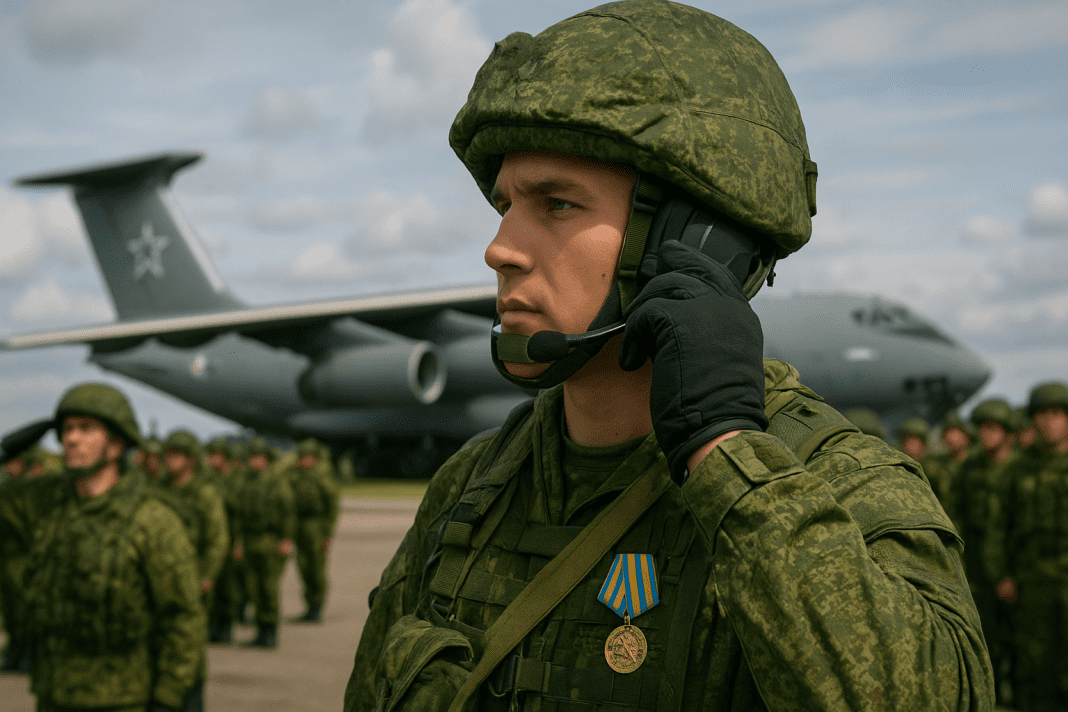Russia has agreed, under a new military agreement, to help China equip and train an airborne battalion, according to leaked papers reviewed by a respected British think tank. The documents, around 800 pages long, were made public by the Black Moon hacktivist group and later verified by the Royal United Services Institute (RUSI).
Leaked Documents Uncover Major Military Agreement
The records show that in 2023, Moscow approved a major military agreement with China’s People’s Liberation Army (PLA). The deal provides China with assault vehicles, airborne armored personnel carriers, and anti-tank weapons. China will fit these armored carriers with its own communication systems and command-and-control technology.
What makes this military agreement especially significant is the training component. Russia has committed to train a full battalion of Chinese paratroopers so they can operate the advanced vehicles and weapons effectively. According to the documents, Russian instructors will conduct part of the training in Russia and part in China. Russian military instructors would then continue the training on Chinese soil, focusing on skills such as landing, fire control, and battlefield maneuvering.
RUSI’s analysis shows that the military agreement also covers the transfer of technologies that would allow China to produce similar weapons in the future. This arrangement deepens an already strong partnership between Moscow and Beijing.
Boost to China’s Air Maneuver Capabilities
Airborne forces form a special branch of the military that trains to move quickly, often by parachute or aircraft, to strike deep into enemy territory. According to RUSI, Russia still holds an advantage over China in this area. The leaked files suggest that Beijing intends to use this military agreement to improve its air maneuver skills by learning directly from Russian combat experience.
Military experts point out that Russian airborne forces have participated in several real battles, gaining valuable field experience. In contrast, China’s airborne troops lack this kind of direct combat history. Training under Russian instructors could help China strengthen areas where it currently falls behind.
Arctic chaos as sanctioned Russian tanker Lynx freezes in ice while shadow oil sails to China
The deal has attracted attention because stronger airborne capabilities could give China more flexibility in regional disputes. RUSI experts noted that Russia trains Chinese special forces to operate in ways that let them slip across borders without being noticed.
This could provide new offensive options in contested regions such as Taiwan or the South China Sea. The Philippines, for example, is one of several nations that face maritime disputes with Beijing. Clashes between Chinese and Philippine vessels in the South China Sea have already taken place, highlighting the growing risks in the region. The leaked military agreement suggests China is working to further strengthen its position in these tense areas.
Deepening Russia-China Military Agreement Links
The leaked military agreement is part of a larger trend of closer cooperation between Russia and China. Since the 1990s, the two countries have traded arms, but their military ties have grown much stronger in the past decade. Leaders from both nations have repeatedly emphasized their partnership as global tensions increase.
In September 2025, Russian President Vladimir Putin, Chinese President Xi Jinping, and North Korean leader Kim Jong Un appeared together at a military parade in Beijing to mark the 80th anniversary of the end of World War II. This rare display of unity underlined how Moscow and Beijing are presenting themselves as strategic allies.
In recent years, Russia and China have also held a record number of joint military exercises. In 2024 alone, they conducted 14 drills together, more than in any previous year since such cooperation began in 2003. These exercises included joint naval patrols around Japan, coordinated air and sea patrols off Alaska, and even their first-ever joint submarine patrol in the Pacific Ocean.
They Can See Us Now! China and Russia’s Radars Track America’s ‘Invisible’ F-35
The leaked documents also show that the airborne battalion deal was not a standalone project but a carefully structured military agreement within this larger partnership. Russia and China increasingly describe their cooperation as being at an “unprecedentedly high level.” This is not only about weapons but also about shared goals, from energy pipelines to joint defense drills.
RUSI’s review emphasizes that the most important element of the 2023 military agreement is not just the transfer of equipment but the training of Chinese soldiers by Russian experts. While it remains unclear if the full deal has already been carried out, the existence of such detailed contracts shows the seriousness of both countries in expanding their defense cooperation.
